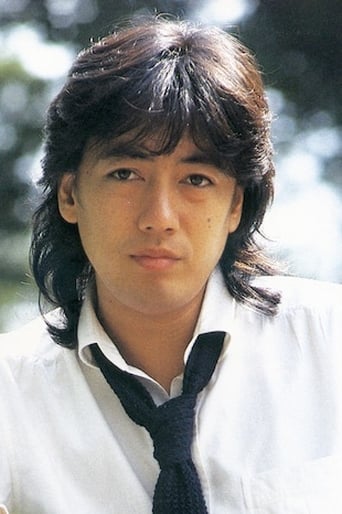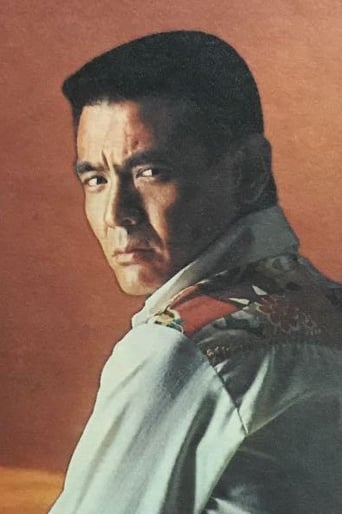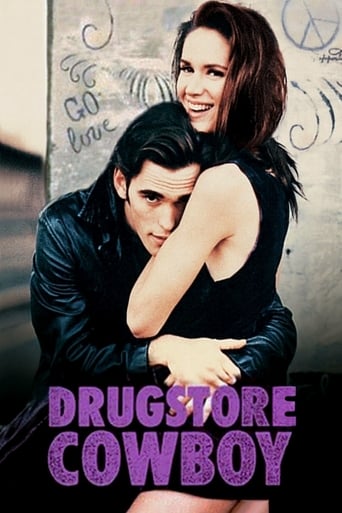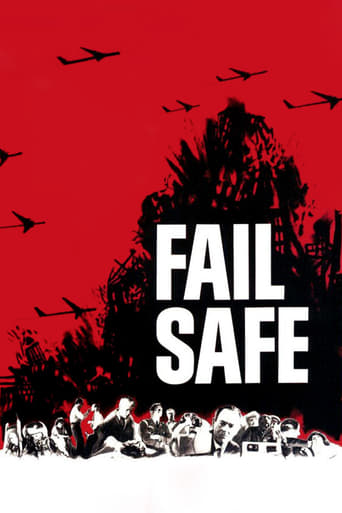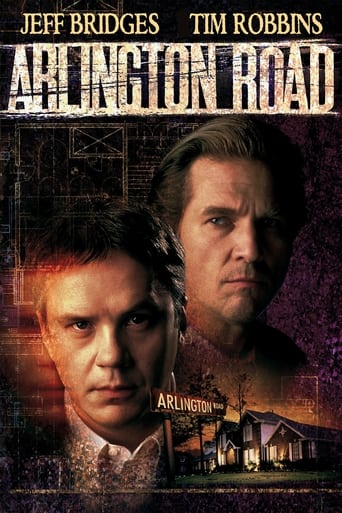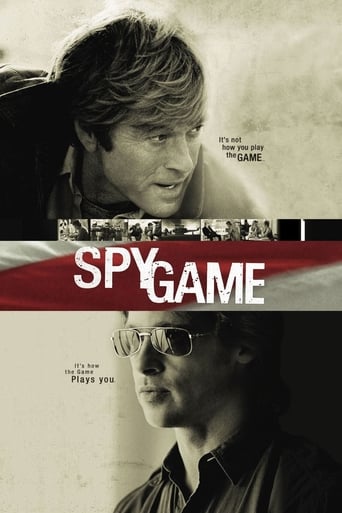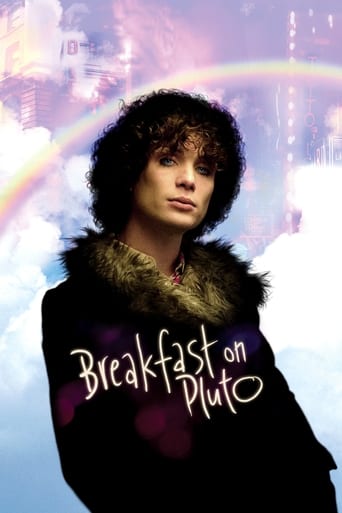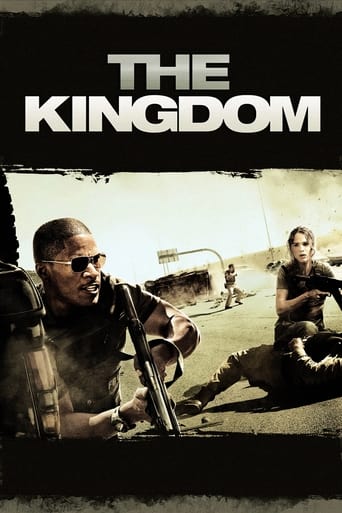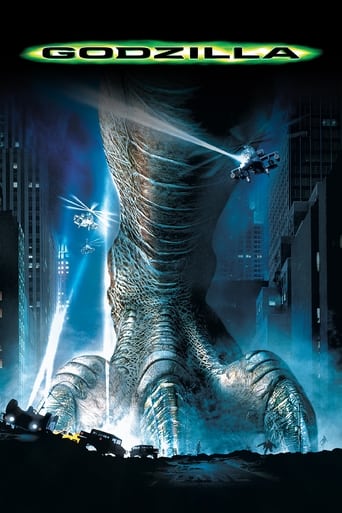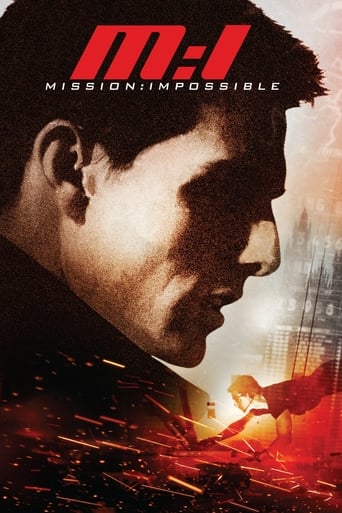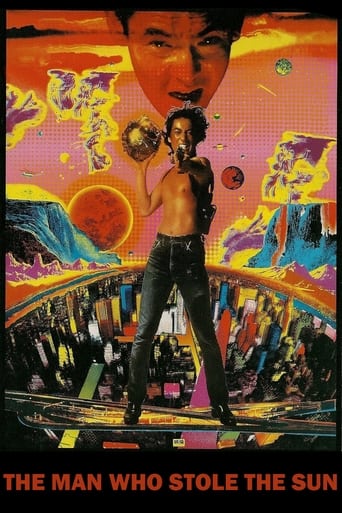
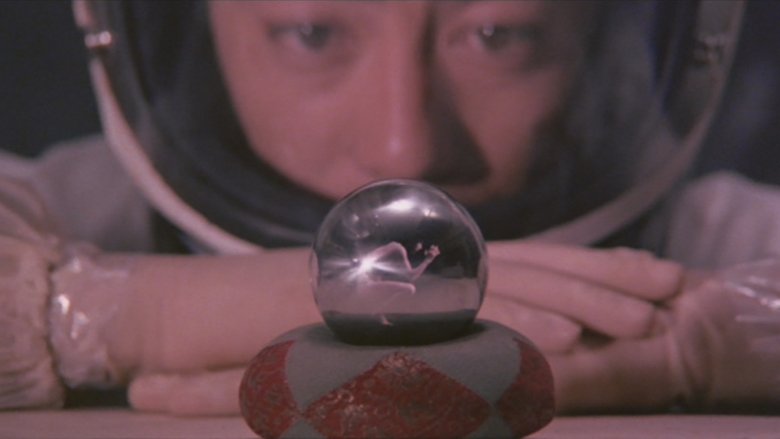
The Man Who Stole the Sun (1979)
A high school science teacher is the butt of all his students' jokes, until their bus is hijacked on a school trip. But something more sinister lurks beneath the surface: he's building an atomic bomb in his apartment.
Watch Trailer
Cast


Similar titles
Reviews
A highschool science teacher decides to make an atomic bomb in his apartment. The opening half hour of this movie is erratic, making it difficult to predict where the story is going or what will ultimately happen. A nice blend of dark thrills and black humor is what makes this one special. It juxtaposes tonal shifts in convincing fashion. The protagonist is an unorthodox mad scientist who is very likable and charismatic. There are some very interesting sequences in this, like the lengthy plutonium experiments and bomb construction. Most of the film is realistic but even the more wildly, intentionally unrealistic moments are entertaining in their craziness. There are also some subtleties that one will miss if they are not paying close attention. Performances are great and the ending is ballsy.Some of the criticisms that I've read for this film have annoyed me. It's like most of the negative reviews are coming from people who are demanding that every element of the film be easily categorized into tiny little boxes of familiarity and traditional filmmaking styles. Take the protagonist's philosophy as one example. We get a very good feel for his character throughout the film. He's an unhinged yet likable science teacher, but according to some critics he's apparently not "properly developed" because he doesn't come out and tell everyone exactly why he made the bomb. Well, why does he need a reason anyway? I thought one of the points of the film was that he didn't know what to do with the bomb after he made it. He even asks the radio DJ to poll her listeners so he can get some ideas! Come on, people. Did you really want him to make a long-winded nationalistic or philosophical speech at the end? I'm glad he didn't. In fact, I find it thought-provoking and refreshing that I have difficulty identifying exactly why he did it. And guess what? That was probably the WHOLE POINT OF THE MOVIE! Another ridiculous criticism is one of those oft-parroted dumb ones that I'll never understand. Due to the black humor and unrealistic moments, there are tonal shifts throughout. Of course, viewers who need their movies carbon-copied in Hollywood fashion will have a problem with this because "the movie doesn't know what it wants to be." Yeesh! Okay, do you really want every movie to be easily categorized as a "comedy" or a "drama" or a "thriller"? Do you really want every movie to be easily categorized as "realistic" or "unrealistic"? Sure, let's just eliminate genre-benders all together and we'll be left with a bunch of boring, predictable films. But at least we can feel good about ourselves because then we can properly categorize them into tiny little boxes. Listen people, the tonal shifts are one reason this film is fun to watch. The same is true with the wild shifts between realism and unrealism. The final half-hour (that everyone complains about) gave me more surprises than the last three dozen "single genre" films I've seen recently.This film refuses to limit itself, and that's why it's so entertaining and impressive.
I watched the Hong Kong DVD release of this film - still available, I believe - which offers reasonable quality, though the Japanese characters have been given Chinese names and the English subtitles are sometimes poor. I thought the first half of the film was intriguing, outlandish, imaginative and weirdly funny. The introduction of a rather irritating DJ character added little to the movie, other than an obligatory romantic interest for the anti-hero. As other reviewers have pointed out, the film goes on too long, offering a succession of action set-pieces that seem at odds with earlier scenes. The main character's motivations remain a mystery and the downbeat ending falls a little flat, given the subject matter. For all these faults, I'd give it another look, but what could have been a great movie slipped away somehow.
The Man Who Stole The Sun "Taiyo o nusunda otoko" (1979) The Man Who Stole the Sun is a title which invokes the myth of Prometheus, who stole fire from the Gods to give to man and was duly punished for it. The film revolves around a science teacher, Makato Kido (Kenji Sawada) who steals the secrets of the atom, constructing his own atomic bomb from stolen plutonium and holding Tokyo to ransom.Kido, the long haired, bubble gum chewing teacher who smokes too much and sleeps in class, goes by the terrorist codename "Nine". A symbolic reference to the eight nations who possess nuclear weapons (America, Soviet Union, England, France, China, India, Israel, South Africa), thus making him, potential nuclear threat number nine. Kido's flawed portrayal is as a man who desires the knowledge and power of an atomic bomb, yet upon attaining it, he is at a loss on what do with it. Subsequently, he calls up the vacuous, pretty radio hostess "Zero" (Kimiko Ikegami) and asks what others would demand if they had a nuclear bomb. The demand: that Rolling Stones would perform in Tokyo.The Rolling Stones is just one reference which contextually marks this late 1970s film. The other themes of the film: the Vietnam and Cold War, nuclear proliferation and the power of nations over the individual, reflects a social context where the autonomy of the individual was second to government agendas. By giving nuclear power to Kido, the film espouses a very liberal agenda of an individual (or public opinion) being able to assert his will on the government.Yet, as with many Japanese films, the fascination of the bomb its raw destructive potential as well as its slow decaying effects is a constant reminder of what the dangers of such power, placed in the wrong hands, can do. But who can blame them, being the only nation to experience the devastating effects of the atomic bomb? (Apart from South Australia of course, but according to the government, Aborigines don't count). "Prolonged exposure to radiation leads to hair loss, tissue decay and eventual death" Zero tells us. The death of Kido's cat through plutonium poisoning, hair falling out, bleeding gums, nausea, vomiting and finally culminating in Zero's ironic death as an indirect result of the bomb are constant reminders of this.Cinematically, Tokyo is captured beautifully through filters, portrayed as an almost surreal, blue urban landscape which infests the very streets, office hallways and the panoramic locations. The scenes in which Kido steals the plutonium is one of the highlights, reminiscent of the stills sequence of Chris Marker's La Jetée. Iran and South Korea could even take a few pointers from Kido's plutonium enrichment techniques heating by home stove-oven.However, the film falls flat in the last half hour. The director had three chances to resolve the ending, but he forgoes all three. As a result, the film seems to protract itself needlessly. The last few minutes turns almost into a mockery of what the director had worked to build in the first one and a half hours, degenerating into a clichéd Hong Kong-esquire action/comedy car-chase and final violent showdown. It also shatters the audience's presumptions about Kido's character, as he desperately attempts to hold onto the bomb which he has no real use for.The film finally ends the only way it could be ended at this point with Kido strolling down the street, atom bomb at his side. Like the bubble gum Kido seems to blow continuously, the atomic bomb (and the story) is finally stretched beyond its natural limits, leaving it with only one thing left to do: burst.
Hasegawa Kazuhiko's "Taiyo O Nusunda Otoko" (AKA The Man Who Stole The Sun) is an odd film which seems a bit out-of-place as a late 1970's movie. Its counterculture, anti-authority/anti-establishment themes which may have been in good company with early 70's movies like "Serpico","Easy Rider" and "The Deer Hunter" seems somewhat late in coming for a film that was released in 1979. Sawada Kenji has made a career of playing edgy, hippie-like characters who are idealistic to a fault and who end up dying for a cause. His youthful rebel characters are almost as indelible as Matsuda Yusaku's similar characters in the movies. There are a lot of things that make this movie a bit hard to swallow in the credibility department. Can one seriously believe for one minute that Sawada's character Kido Masato, a high school Physics teacher, has the necessary skills and abilities to infiltrate a Japanese Nuclear plant, steal nuclear grade Plutonium, fashion a crude "dirty bomb" and escape capture numerous times from the Police? I also found the ending almost too ridiculous for words. How can Kido survive a major car crash and then a fall from the top of tall building? Sagawara Bunta's dedicated police inspector Yamashita is your atypical police movie standard but Sagawara's usual tough guy intensity is nice to see. I really wanted to see him capture Kido but then again the tone of the movie screamed out that the "villain" would win. I didn't really know what director Hasegawa was trying to get at. Are we supposed to support Sawada's character in his quest to blowup Tokyo? We weren't really given any reasons for his actions. My guess is that he just wanted to "stick it to the man" but this really isn't made very clear. Quite an odd and disturbing movie especially given what's happening in the world now.


